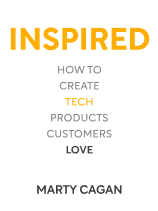

This article is an excerpt from the Shortform book guide to "Inspired" by Marty Cagan. Shortform has the world's best summaries and analyses of books you should be reading.
Like this article? Sign up for a free trial here .
What is the role of a product manager in a product development team? What five key characteristics do good product managers possess?
The product manager is arguably the most important role in a product development team. They have four key responsibilities: customers, data, the company, and the industry.
Continue reading to learn about the product manager description.
Building a Product Development Team
For a product to be successful, it needs a good team working on it. This is how to create an effective team, and thus give a product the best chance of success.
Every team needs to be filled with missionaries rather than mercenaries. In other words, employers should look for and cultivate those who truly believe in the product and advocate for it rather than people who only do what they’re told.
Here are the three key positions:
- The product manager
- The product (or UX) designer
- The engineers
This article will focus on the product manager’s description, responsibilities, and characteristics.
Key Position #1: Product Manager
Among the three key product development roles, the product manager is the most critical to the success of a product team. At a smaller company, the product manager could be the president/CEO as well.
Key Responsibilities
The product manager must understand what ideas will succeed and what ideas will fail. A product manager must be knowledgeable about:
- Customers: The product manager understands who the desired customers for a product are and what they want or need. This includes a qualitative understanding of the customer—or why customers buy—and a quantitative understanding of the customer—or exactly what they buy and at what rates.
- Data: A product manager knows how to use analytics to make good decisions. This contributes to the quantitative understanding of the customer—if a product manager understands sales and usage data, they’ll understand customer behavior better.
- The company: A product manager knows what’s going on at all levels of the company and who makes decisions. They understand the sales department and the marketing departments, but also know the CEO and what her interests are. Understanding who the stakeholders are in each part of the company helps the product manager make decisions.
- The industry: A product manager also knows the competitors and the landscape of the industry. Is it growing, which would suggest more potential competitors, or contracting, which might make it harder to make sales? In addition to knowing what competitors are doing, the product manager also has insight into changes in technology and how social media relates to the market.
A product manager at a poorly functioning team works in one of two ways:
- The product manager escalates all problems they think are important up the ladder, likely to a CEO or president.
- The product manager serves as only a meeting administrator, calling and facilitating meetings where others make decisions.
Both of these approaches devalue the role of the product manager.
Key Characteristics
Even the best product managers take a few months to learn the job, so make good hires or you’ll waste months of effort and training.
Great product managers have five important qualities:
- Smarts: This isn’t just about IQ. A smart person has to also be curious about the world, willing to learn, and constantly thinking about work beyond the 9-to-5 business day.
- Creativity: The creative product manager doesn’t limit herself to business strategies that the company has used in the past, or even to the specific assignment that the company gives her. Rather, she thinks in unique ways to achieve company goals.
- Persistence: Good product managers keep trying, even when things don’t go their way. A CEO might at first be wary of outside-the-box solutions, but a good product manager will continue pushing the CEO, using convincing data and consistent communication to get her point across.
- Leadership: The best product managers are willing to take the lead on a project, even if they aren’t technically anyone’s boss. They advocate for the ideas that they and their group have generated, and they have the people skills necessary to influence their team, their CEO, others in the company, and their industry.
- A collaborative spirit: To acquire a deep knowledge of their customers, data, the company, and the industry, product managers rely on the expertise of others. So they must be willing and able to collaborate.
Finally, every good product manager at a tech company has a basic understanding of computer programming and business. Computer programming helps them to understand their engineers, and business knowledge helps them to understand the industry. They take additional classes in these two fields if they didn’t have an introduction to them in college or graduate school.
The Lead Product Manager
Large companies developing multiple products under multiple managers have a lead product manager who coordinates department efforts. This manager is a senior executive, and has all of the same skills as the other product managers, but their primary role is to maintain a holistic view of the company and see how all of the products are fitting together (or not).
They also know how to develop teams, have a clear vision of the overall mission of the company, understand the company culture, and can execute on many disparate ideas.
Finally, the person in this role builds good relationships with both the product managers and the CEO/CFO. They’re capable of explaining their overall vision to the product managers, while also making them feel as if they are in charge of their own products. Lead product managers are also good at taking feedback from product managers, implementing it, and explaining it to the CEO/CFO.

———End of Preview———
Like what you just read? Read the rest of the world's best book summary and analysis of Marty Cagan's "Inspired" at Shortform .
Here's what you'll find in our full Inspired summary :
- A two-step plan for creating and sustaining successful technology products
- Why product managers are so important in product development
- How to avoid some of the biggest pitfalls that most tech companies fall into






